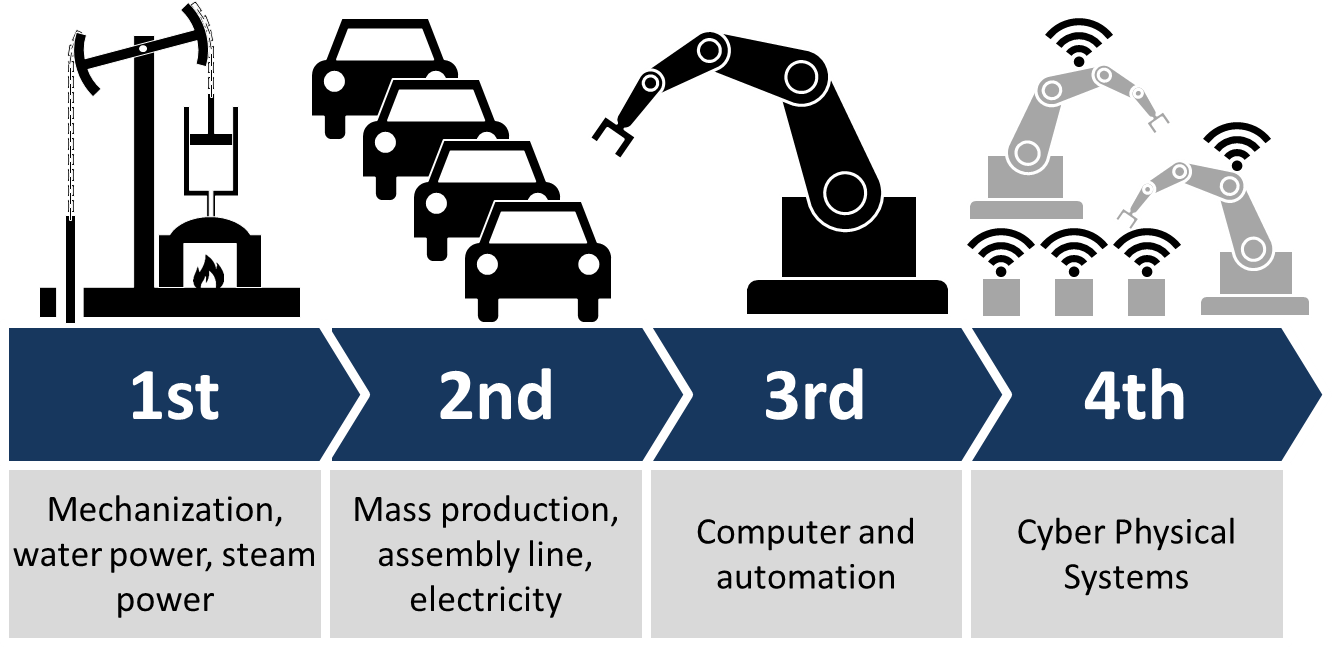
KTC & Industry 4.0
Brief overview of the 4th Industrial Revolution
INDUSTRY 4.0
Digital technology is not only changing the way we communicate (just think of social media9, but also the entire productive and manufacturing system. We’re in the middle of the fourth Industrial Revolution
Bu which were the other three Industrial Revolutions?
If we consider things from the point of view of Energy, the first Industrial Revolution, in the 18th century, is linked to steam engines and mechanic work, while the Second Industrial Revolution is about electricity, oil, chemical products starting from the late 19th century until the conveyor belts in the 20th century.
The third Industrial Revolution in the second half of the last century is associated with electronics, remote communication and IT
Speaking about “Industry4.0” means also Internet of Things. IoT is widely employed both in a domestic use (let’s think of home automation) and in Smart Factories, meaning factories that have made a transition towards digitalization of industrial processes.
IoT in the industrial field is made up Cyber-Physical Systems (CPSs) provided with their own AI, calculus skills and that are able to communicate.
In the same way that the way we communicate has changed radically in the last few years because of social media and smartphones, in the same way, the industrial sector has changed deeply with the step following digitalization, machine networking – the network of a series of machines and devices. All this together with the development of AI and machine learning.
In times of di industry 4.0 the “human factor” is more and more important. By this, we can imply that all communication, social and technological skills of workers that deal with production, maintenance, and supervision of machines. Therefore training and keeping up-to-date are becoming crucial aspects.
We’re shifting towards life-long learning in all fields in which work will necessarily have to do with the continuous learning of new content and technologies.
Another fundamental aspect that is continuously evolving is the relationship between producers and customers in a B2B universe.
New technologies, digitalization and cloud sharing create the right conditions for a stronger link between stakeholders, so customers are becoming proper partners of companies in developing solutions with an increasingly high degree of personalization.
This implies considerable advantages both in terms of assistance, maintenance and information exchange.
Most industrialized countries have already started supporting their National industrial sectors in order to make the most of this opportunity. Italy has developed its “”National plan for Industry 4.0” that entails specific measures according to three main guidelines.
- Operating with a logic of technological neutrality
- Horizontal actions rather than vertical and sector-based ones
- Acting on skill-enhancing factors






